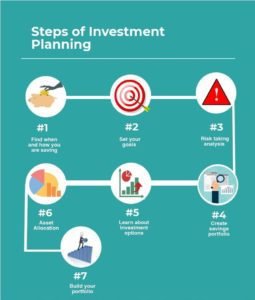Last updated on March 21st, 2024 at 08:55 am
Take any wealth management interview training and you will see a mix of questions. Some questions will be about the subject or an associated theme while others will focus on ethics. Some others will be about your interpersonal and soft skills, which are equally important for you to both land and pass a job interview.
But detecting the most important questions and answering them in a way that floors the interviewer is what will set you apart. Here are six such questions and how to answer them like a pro.
6 Critical Wealth Management Interview Questions
This is a mix of two topical questions, two about finance in general, and two about ethics. Let’s go.
What is the most important factor when recommending an investment instrument to a client?
You are supposed to be a bit diplomatic here because the answer is in the plural. Both the earning potential/in-hand capital and the end goal/s are important. Only when you know what the investment figure is going to be and for what purpose can you recommend an instrument that will be ideal for that scenario for that person. A third factor would be the investor’s age.
Or you can choose to answer this using an example. In that case, you can give a single answer and impress the interviewer. For instance, assume the age and the figure and leave the third factor to the imagination, which becomes the most important one in that example.
How can an Indian citizen explore offshore investments?
This is a tough nut to crack and will require you to have some knowledge about international investing. Use available info to provide a safe answer. If you can, detail a process out and provide examples.
 Remember that interviewers love examples. So, keep feeding them with appropriate real-life examples. To learn about new topics such as international investing, explore wealth management courses online.
Remember that interviewers love examples. So, keep feeding them with appropriate real-life examples. To learn about new topics such as international investing, explore wealth management courses online.
Do you consider insurance an investment?
This again demands a diplomatic answer. Here you can divide your answer into two:
- On its own, insurance can never be termed an investment as it is used as a cushion in case of an unfortunate incident. Moreover, the returns on insurance policies are low and not appropriate when one is considering the management of huge wealth
- Depending upon the age of the investor, and if he does not already have insurance, insurance may be considered an investment
Interviewers are looking at your thought process as well as subject knowledge. So, make sure you define the concepts well before providing your opinions on them.
What according to you is an underrated investment path?
This is another tricky question where the interview is testing your knowledge about different instruments. Use your judgment and pick an obscure instrument that provides high ROI and also saves in taxes. Don’t forget to answer diplomatically and use examples.
 It is questions like this that makes taking a wealth management interview training worthwhile. You can learn more about the topic as well as know about different investment tools.
It is questions like this that makes taking a wealth management interview training worthwhile. You can learn more about the topic as well as know about different investment tools.
Would you suggest tax evasion to a client if it means creating wealth?
This is to test your stand on ethics. The answer is no, but you should garnish it with examples of how you would communicate with the client and provide better solutions.
Would you use one client’s investment information to help another client?
Again, the answer is no, but you should furnish as to why you wouldn’t do it. Providing your opinion may win you some brownie points but beware or it can also backfire.
These are some of the most challenging questions that you may be asked at your next wealth management job. Enrolling into a wealth management course won’t harm.

